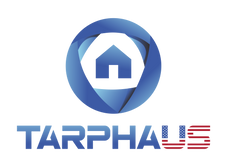
Flatbed Maintenance Time? Follow these tips
Flatbed transporters make much more miles on their vehicles than drivers in other industries. However, more miles out and about implies more possibilities for road accidents, which implies your vehicle should be pretty much as protected as conceivable when you head out on your next trip, and be fit as a fiddle to confront day by day mileage. You rely upon your hardware to keep your drivers safe and guarantee shipments arrive at their destination on schedule.
Beside the state regulations and speed limits, there are a lot of approaches to be more secure when you're working your flatbed truck.
Adopt “better safe than sorry” approach to problems: Prevent flatbed equipment issues before they happen
Issues can emerge in each part of your trailer, yet you should give consideration to these points that are particularly defenseless against wear and tear, contact with the ground, and load pressure:
- Tire inflation – Maintaining appropriate pneumatic stress is fundamental to expanding the lifespan of your trailer tires. Consistently check all tires with an appropriately adjusted pneumatic stress measure and review for penetrates, cuts, or harmed valve center stems. Take additional consideration to keep up within double tires, as wear on these tires can go unnoticed. Check for objects wedged between the duals and eliminate them right away.
- Check Tarp scraps - Retractable Tarping Systems are made to last as long as 10 years, yet will require servicing throughout that time, especially the Conestoga. One thing each trucker should do is wipe down the rail each time they have stacked the load. Keeping the track clean can save the wheels. Make sure to check the framework for relaxed connections and consistently supplant rail defenders. Any tears should be taken in for appropriate fixes as quickly as time permits, before the harm deteriorates.
- Landing gear – Pressure-wash the landing stuff and suspension to eliminate any soil or coarseness that has gathered during use. Grease up the oil fittings. Check connection points on the landing gear. You rely upon your arrival stuff to settle your flatbed while it's segregated from the truck, so keeping it in good shape will guarantee your hardware stays in shape.
- Test the engine - Test for cautioning signs like extreme smoking, loss of oil pressure, or a decline in power. Any of these could show motor and drivetrain issues, which can become significant issues if not attended instantly.
Create a Maintenance Schedule
Like any other vehicle, flatbed trailers need regular preventive maintenance to ensure safe operation and reliability.
Long courses through rain, snow and hot weather will normally corrupt your hardware, yet the weaker pieces of your flatbed trailer will require more continuous preventative support. It's essential to follow ordinary one-and half year upkeep plans so early indications of wear and tear to your high-hazard segments don't go unchecked.
Below is a sample of a maintenance schedule, that we used for our fleet:
Once a month:
- Check tires for wear and proper air pressure.
- Check lights and reflectors, inspect wiring.
- Inspect body for physical damage – paint, license plate, and mud flaps.
- Check landing gear legs and kingpin.
- Check cargo securement: check winches for smooth operation and winch straps for deterioration or tears.
Every six months:
- Check brake lining, inspect and record lining wear.
- Inspect wheel bearings, check for oil leaks.
- Check axle alignment, record the condition.
- Inspect for leaks and chafing, check seals and couplers, repaint wheels if showing wear, and check torque arms, springs, and U-bolts.
- Check all suspension components.
- Check tires, wheels, and lighting.
- Check landing gear legs.
It is fundamental for an organization that depends on an armada of business trucks or owner-operators to find a way to make and utilize a truck upkeep agenda and follow a preventive maintenance timetable to control the expenses of servicing the truck and to guarantee that the truck performs securely under all conditions.
Should you have any questions, please keep in touch: 844-997-TARP or send us an email at vic@tarphaus.com.
Meanwhile, make sure to check our latest arrivals:
